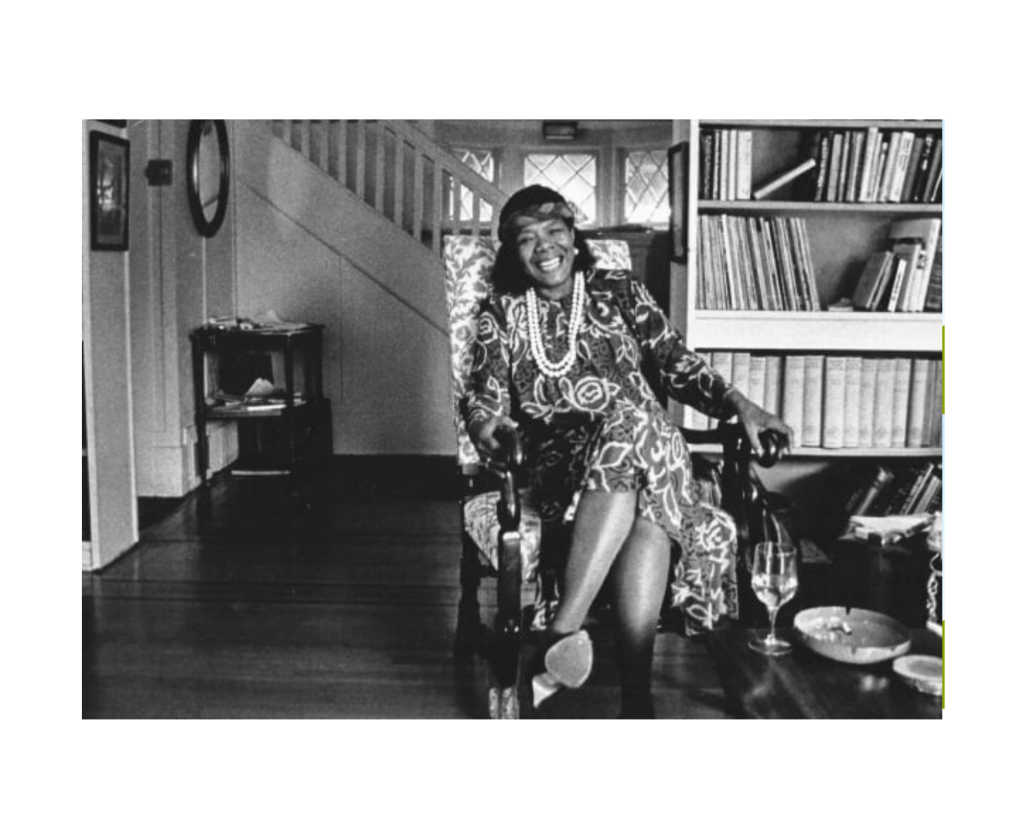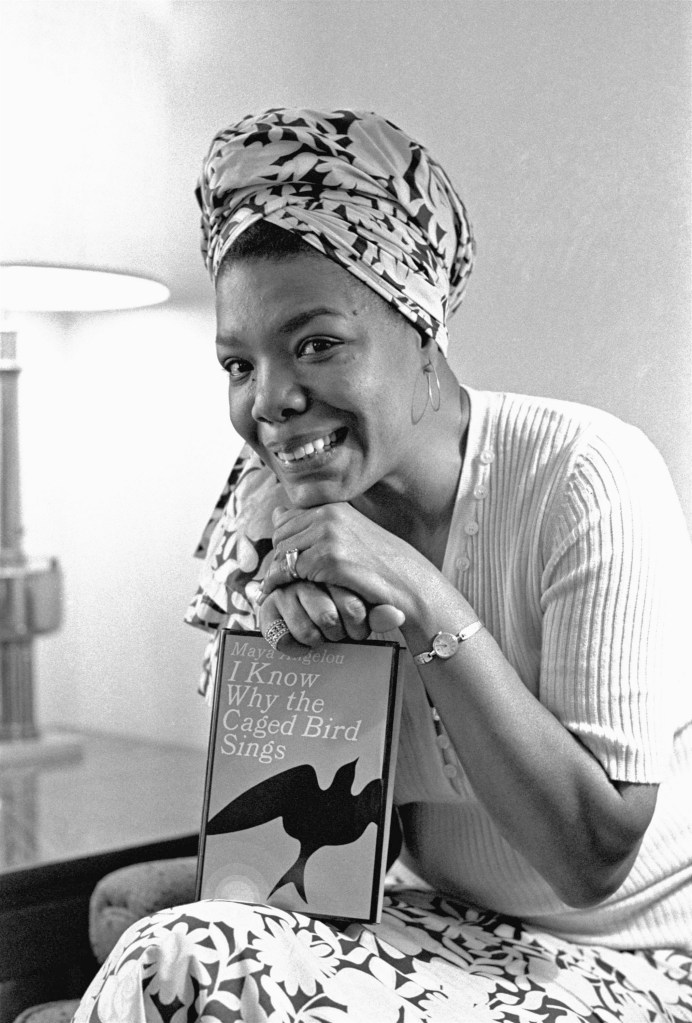
For the past few years, the theme for my composition classes has been language. Language and the many roles it plays in our lives and our society.
Although I change the structure of the course, along with the reading materials, every year, one thing remains constant. I always start the first week with a discussion on Maya Angelou‘s perception of language. I assign a few of her poems and her interview with The Paris Review (1990).
And every single time–every. single. time.– it leads to such insightful discussions in the class.

Here’s one of my favorite quotes from the interview that I use on my syllabus:
When I’m writing, I am trying to find out who I am, who we are,
what we’re capable of, how we feel, how we lose and stand up, and go
on from darkness into darkness. I’m trying for that. But I’m also trying
for the language. I’m trying to see how it can really sound. I really love
language. I love it for what it does for us, how it allows us to explain
the pain and the glory, the nuances and the delicacies of our existence.
And then it allows us to laugh, allows us to show wit.Real wit is shown in language. We need language.
Maya Angelou, The Paris Review, The Art of Fiction No. 119
When George Plimpton asks her: “If you had to endow a writer with the most necessary pieces of
equipment, other than, of course, yellow legal pads, what would these be?,” Angelou responds:
Ears. Ears. To hear the language. But there’s no one piece of
The Paris Review, The Art of Fiction No. 119
equipment that is most necessary. Courage, first.
The best part of writing for Angelou? It’s language again:
Well, I could say the end. But when the language lends itself to me,
when it comes and submits, when it surrenders and says, I am yours,
darling—that’s the best part.The Paris Review, The Art of Fiction No. 119
And I’ll leave you with this powerful reminder:
I’d love to hear what you think: as a writer and a reader, how important is language to you?
-Neri

Neri: What a great way to begin a class: a thoughtful discussion about words using Angelou’s stirring poetry as a springboard. I have been fascinated with the English language — containing more than one million glorious words (and adding about 4,000 new words per year) — as far as I can remember. One of my favorite aphorism is a variation of Jean-Paul Sartre’s brilliant insights (“You are your choices”) used by the editors of the American Heritage Dictionary: “You are your words.” We are judged by the words we use, and how we speak and write. Indeed, they reflect who we are. My fascination with words is why out of the 8,000 books that I own, at least 15% of those are dictionaries, thesauri, and word reference books of every kind. The heart of my word book collection is the 20-volume Oxford English Dictionary. On Atkins Bookshelf I often write about the etymology of words and phrases, the favorite words of authors, types of words (those invented by authors, rare words, most beautiful words, etc.). If you truly love words, then I highly recommend the book and movie: The Professor and the Madman about the making of the OED. There is a great quote about words: “[When I read] it’s freedom. I can fly out of this place on the backs of books. I’ve gone to the end of the world on the wings of words.” And that is where poets truly excel, they help us explore distant lands or the forgotten recesses of our souls on the wings of words, glorious words. Cheers. Alex
LikeLiked by 2 people
Hi Alex, this really resonates with me. I started learning English as a second language in high school, and I’ve been fascinated with it since then, particularly grammar.
And yes, you’re right, we are our words, indeed. It’s intriguing that we don’t often recognize how powerful words are. That’s why I love teaching a writing course that centers on the concept of language. Once students start to understand how we use words to construct our reality, they actually become better readers, writers, and critical thinkers. Love it!
I haven’t heard of the movie, The Professor and the Madman, but I’m a fan of the OED–I’ll certainly watch it. Thanks for the recommendation and for sharing your thoughts!
I look forward to reading your posts. -Neri
LikeLike
Perfect. I recently read Maya Angelou’s “I Know Why The Caged Bird Sings”, and I instantly fell in love with her style of writing and the way she used language to express herself. Truly, her use of language made the story come alive. There is so much one can learn from her, as a writer and as an individual.
LikeLiked by 1 person
Language did come to Angelou organically, didn’t it? I love “I Know Why The Caged Bird Sings” and its rawness.
LikeLike
Yes and it’s flawless.
LikeLiked by 1 person
Angelou has a wonderful way of writing, a warmth that makes her quotes feel like a big hug surrounding you…she is like everyone’s grandmother, just love her. Thanks for this post!!
LikeLiked by 1 person
“Words are things”. I couldn’t agree more. No wonder positive affirmations are being used to change human behaviour and dysfunctional beliefs in some methods of psychotherapy. I have found words to make a powerful impact on the way people think. Often the bridge between understanding and conflict is woven out of the right words.
LikeLike
English is my second language and I just fell in love with it. I always felt the words or language should be such that it shouldn’t remain as mere words instead it should paint a picture. When somebody describes a flower, rather than words, the reader should be able to see and feel that flower. Hope, I made myself clear.
LikeLiked by 1 person
Yes, absolutely. Its simplicity is remarkable, isn’t it? 🙂
LikeLiked by 1 person
Yes…
LikeLike